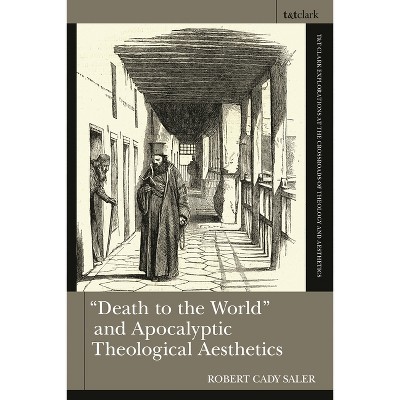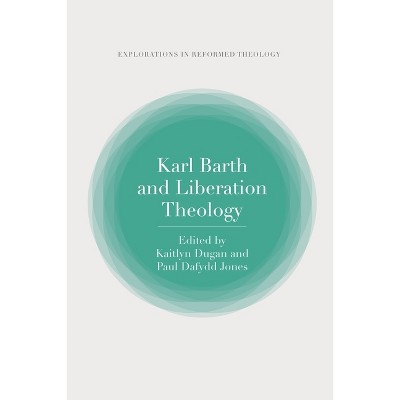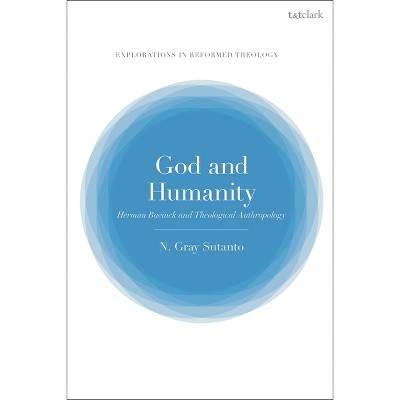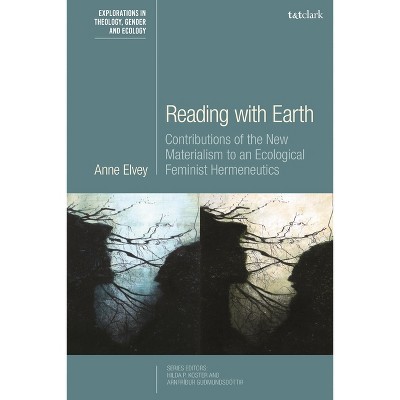The Karamazov Case - (T&t Clark Explorations at the Crossroads of Theology and Aesthetic) by Terrence W Tilley (Paperback)

$39.99 when purchased online
Target Online store #3991
About this item
Highlights
- This is a new interpretation of Dostoevsky's novel The Brothers Karamazovthat scrutinizes it as a performative event (the "polyphony" of the novel) revealing its religious, philosophical, and social meanings through the interplay of mentalités or worldviews that constitute an aesthetic whole.
- About the Author: Terrence W. Tilley is Professor Emeritus of Theology and Chair of the Department at Fordham University, USA.
- 184 Pages
- Religion + Beliefs, Theology
- Series Name: T&t Clark Explorations at the Crossroads of Theology and Aesthetic
Description
About the Book
"This is a new interpretation of Dostoevsky's novel -The Brothers Karamazov - that scrutinizes it as a performative event (the "polyphony" of the novel) revealing its religious, philosophical, and social meanings through the interplay of mentalitâes or world-views that constitute an aesthetic whole. This way of discerning the novel's social vision of sobornost' (a unity between harmony and freedom), its vision of hope, and its more subtle sacramental presuppositions, raises Tilley's interpretation beyond the standard "theology and literature" treatments of the novel and interpretations that treat the novel as providing solutions to philosophical problems. Tilley develops Bakhtin's thoughtful analysis of the polyphony of the novel using communication theory and readers/hearer response criticism, and by using Bakhtin's operatic image of polyphony to show the error of taking "faith vs. reason", argues that at the end of the novel, the characters learned to carry on, in a quiet shared commitment to memory and hope"--Book Synopsis
This is a new interpretation of Dostoevsky's novel The Brothers Karamazovthat scrutinizes it as a performative event (the "polyphony" of the novel) revealing its religious, philosophical, and social meanings through the interplay of mentalités or worldviews that constitute an aesthetic whole. This way of discerning the novel's social vision of sobornost'(a unity between harmony and freedom), its vision of hope, and its more subtle sacramental presuppositions, raises Tilley's interpretation beyond the standard "theology and literature" treatments of the novel and interpretations that treat the novel as providing solutions to philosophical problems.Tilley develops Bakhtin's thoughtful analysis of the polyphony of the novel using communication theory and readers/hearer response criticism, and by using Bakhtin's operatic image of polyphony to show the error of taking "faith vs. reason", argues that at the end of the novel, the characters learned to carry on, in a quiet shared commitment to memory and hope.
Review Quotes
"Reading The Karamazov Case is like spending a delightful afternoon discussing what it means to live well with a wise theologian who brings a lifetime of insight and a lively mind to the conversation." --Horizons: Journal of the College Theological Society
About the Author
Terrence W. Tilley is Professor Emeritus of Theology and Chair of the Department at Fordham University, USA.
Dimensions (Overall): 9.21 Inches (H) x 6.14 Inches (W) x .39 Inches (D)
Weight: .58 Pounds
Suggested Age: 22 Years and Up
Number of Pages: 184
Genre: Religion + Beliefs
Sub-Genre: Theology
Series Title: T&t Clark Explorations at the Crossroads of Theology and Aesthetic
Publisher: T&T Clark
Format: Paperback
Author: Terrence W Tilley
Language: English
Street Date: December 26, 2024
TCIN: 94439625
UPC: 9780567704429
Item Number (DPCI): 247-30-7508
Origin: Made in the USA or Imported
If the item details aren’t accurate or complete, we want to know about it.
Shipping details
Estimated ship dimensions: 0.39 inches length x 6.14 inches width x 9.21 inches height
Estimated ship weight: 0.58 pounds
We regret that this item cannot be shipped to PO Boxes.
This item cannot be shipped to the following locations: American Samoa (see also separate entry under AS), Guam (see also separate entry under GU), Northern Mariana Islands, Puerto Rico (see also separate entry under PR), United States Minor Outlying Islands, Virgin Islands, U.S., APO/FPO
Return details
This item can be returned to any Target store or Target.com.
This item must be returned within 90 days of the date it was purchased in store, shipped, delivered by a Shipt shopper, or made ready for pickup.
See the return policy for complete information.
Trending Poetry

Bestseller
$24.48
MSRP $35.00
Buy 2, get 1 free select books, movies, music & Funko
4.7 out of 5 stars with 26 ratings

Bestseller
$14.39
Buy 2, get 1 free select books, movies, music & Funko
3.8 out of 5 stars with 62 ratings

$22.80
was $26.60 New lower price
Buy 2, get 1 free select books, movies, music & Funko
5 out of 5 stars with 4 ratings

Highly rated
$9.85 - $23.09
MSRP $15.99 - $32.99
Buy 2, get 1 free select books, movies, music & Funko
4.8 out of 5 stars with 137 ratings

$23.09
Buy 2, get 1 free select books, movies, music & Funko
3.8 out of 5 stars with 13 ratings

$23.09
Buy 2, get 1 free select books, movies, music & Funko
4.4 out of 5 stars with 11 ratings





